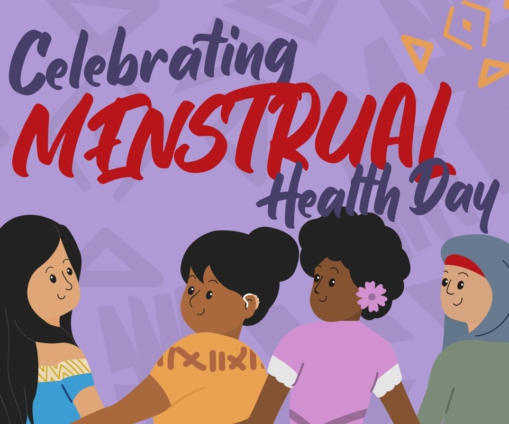Days for Girls Ghana, a non-governmental organisation (NGO), has reiterated the call for tax exemptions on menstrual hygiene products to make them affordable for girls.
Ms. Sandra Boakye, the Country Director of the NGO, said inadequate government commitment in supporting access to menstrual hygiene products had led to an increase in prices due to the 20 percent luxury tax.
This has made it difficult for adolescent girls, who do not have the means to buy them during menstruation, to practice healthy protocols.
Ms. Boakye said this at a capacity-building workshop her office organised for the media on menstrual health.
She said Menstrual Hygiene and Health Management was a key component of education for girls towards achieving academic excellence and career goals and needed the support of all.
"We at Days for Girls (DFG) are passionate about reaching every girl everywhere during their menstruation by providing sustainable menstrual products (DFG washable kit or reusable pads) and creating awareness on it through working with diverse stakeholders in schools and communities," she said.
Ms. Boakye said, however, that essential materials for reusable pads were not easily accessible due to high importation cost for the flannel and the lack of standards for certification of reusable pads in Ghana.
That raised concerns about the safety and efficiency of the product, she said.
Data had shown that 21.3 percent of women and girls living in rural areas used cloths during their menstruation with about 4.2 percent doing the same in urban areas, she said.
Also, 35 percent of women and girls reported they did not have the resources to manage their menstruation hence the need for reusable pads.
Ms. Boakye said hygienic, durable and environmentally friendly locally produced pads had a three-year lifespan thus a good replacement for the regular disposable sanitary pads.
She said disposable pads were expensive in Ghana and that the ordinary schoolgirl, every month, must budget six cedis or more to buy pads for menstruation.
“But the reusable pad is very easy to use, less expensive, comfortable, and professionally designed,” she said.
She said the NGO had produced reusable pads in a rag-like form and nicely packaged and that all one needed to do was to wash and dry them in sunlight after use.
Ms. Boakye urged the media to raise awareness on issues concerning Water, Sanitation, and Hygiene (WASH), Sexual and Reproductive Health, and menstrual hygiene management (MHM) to constantly keep those matters high on the public agenda.
The training was mainly on women's health, MHM situation in Ghana and the sustainable interventions, and the role of the media in menstrual hygiene management.
Latest Stories
-
Paris 2024: Opening ceremony showcases grandiose celebration of French culture and diversity
3 hours -
How decline of Indian vultures led to 500,000 human deaths
4 hours -
Paris 2024: Ghana rocks ‘fabulous fugu’ at olympics opening ceremony
4 hours -
Trust Hospital faces financial strain with rising debt levels – Auditor-General’s report
4 hours -
Electrochem lease: Allocate portions of land to Songor people – Resident demand
5 hours -
82 widows receive financial aid from Chayil Foundation
5 hours -
The silent struggles: Female journalists grapple with Ghana’s high cost of living
5 hours -
BoG yet to make any payment to Service Ghana Auto Group
5 hours -
‘Crushed Young’: The Multimedia Group, JL Properties surprise accident victim’s family with fully-furnished apartment
6 hours -
Asante Kotoko needs structure that would outlive any administration – Opoku Nti
6 hours -
JoyNews exposé on Customs officials demanding bribes airs on July 29
7 hours -
JoyNews Impact Maker Awardee ships first consignment of honey from Kwahu Afram Plains
8 hours -
Joint committee under fire over report on salt mining lease granted Electrochem
8 hours -
Life Lounge with Edem Knight-Tay: Don’t be beaten the third time
8 hours -
Pro-NPP group launched to help ‘Break the 8’
8 hours

